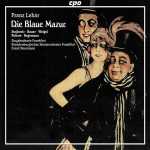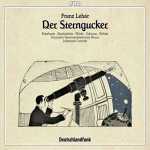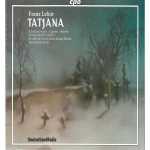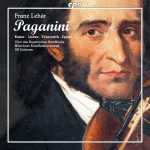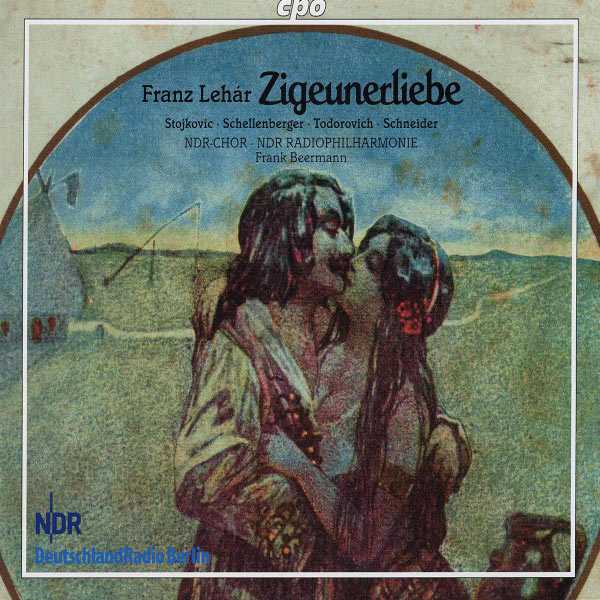
Composer: Franz Lehár
Performer: Johanna Stojkovic, Dagmar Schellenberger, Zoran Todorovich, Bernhard Schneider, Ksenija Lukic, Stefan-Alexander Rankl, Markus Koehler, Andrej Bielow, NDR-Chor
Orchestra: NDR Radiophilharmonie
Conductor: Frank Beermann
Number of Discs: 2
Format: FLAC (tracks)
Label: CPO
Catalogue: 999842-2
Release: 2005
Size: 502 MB
Recovery: +3%
Scan: cover
CD 01
Zigeunerliebe
01. Overture
Act I
02. Introduction. Heissa, heissa! (Zorika)
03. Duet. Sa sprach noch niemals ein Mann zu mir (Zorika, Jozsi)
04. Song and Csardas: Se traska, liebe Gaste (Zorika, Ilona, Frau von Kerem, Jolan, Jonel, Jozsi, Dragotin, Moschu, Chorus)
05. Trio. Zuerst sucht man Gelegenheit (Ilona, Jolan, Kajetan)
06. Finale. Da habt lhr nun den Mund voller Pracht
CD 02
Act II
01. Scene and Song. Kutya lanczos (Zorika, Jozsi, Milhaly)
02. Gipsy’s March: Endlich, Jozsi (Zorika, Jozsi, Milhaly, Chorus)
03. Song. War einst ein Madel (Zorika, Jozsi, Milhaly)
04. Duet. Ich weiss ein Rezept, ja ganz famos (Ilona, Dragotin)
05. Duet. Liebes Mannchen folge mir (Jolan, Kajetan)
06. Duet. Ha ha ha ha! Das fin ich kostlich! (Ilona, Jozsi)
07. Duet. Lass dich bezaubern (Zorika, Jonel)
08. Finale. Varwarts Madeln, ruhrt die Handel
09. Intermezzo. Waltz
Act III
10. Reminiszenz: Gib mir das Zweiglein (Jonel)
11. March Trio. Lieber Onkel hor mich nur an (Jolan, Kajetan, Dragotin)
12. Trio. Jozsi, diese Damen, die wussten gar gern (Ilona, Frau von Kerem, Jozsi, Lady’s Chorus)
13. Song and Csardas: Hor’ ich Zimbalklange (Ilona)
14. Schlussszene: Ich bin ein Ziguenerkind (Ilona, Jozsi, Chorus)
Although the “golden age” of operetta has come and gone, composer Franz Lehár isn’t in any real danger of being neglected so long as The Merry Widow continues to tread the boards of the world’s stages. But as his first major “hit,” and as an operetta stylistically limited by the constraints of contemporary fashion and tradition, The Merry Widow does not provide a full measure of the extent of Lehár’s mastery as a composer. Zigeunerliebe (Gypsy Love) is a far better candidate for that qualification, and its first complete recording, now available from CPO, is reason for operetta fans to celebrate. Premiered in 1910, this three-act operetta is closer to being an opera and draws into the musical texture an odd admixture of influences ranging from Wagner to Richard Strauss to pop-styled Hungarian gypsy music. Although no one would give credit to Lehár the distinction of being an “experimental composer,” he does nonetheless present an experimentally conceived blend of styles here, confirming his own otherwise bewildering comment that “I have always experimented, reached out to something new, often enough against the intentions of directors and publishers.” That the middle act is set out in the form of a dream, and that Lehár matches the story to a musico-stylistic pastiche that progresses in the same manner as a dream, shows how far Lehár was willing to go with his experimental ideas.
The music is ravishing, challenging, and extraordinary in every way, and we can be thankful that CPO’s recording of Zigeunerliebe is close to ideal. The male singers are the weakest element, but these men are coming from a different tradition of singing related to grand opera and are not comfortable with the less forceful and vibrant requirements of operetta. The women are much better, with Dagmar Schellenberger, in the secondary role of Ilona, being excellent in particular, but Johanna Stojkovic is well more than just adequate in the important lead part of Zarika. The NDR Radiophilharmonie under Frank Beermann is splendid in every bar of this music, and this is important as Lehár’s orchestration is in this case particularly ambitious and colorful. True operetta fans will so love Zigeunerliebe that even the relatively minor shortcomings of this set will not matter a great deal. If you have an operetta fan in your family who “has everything,” CPO’s Zigeunerliebe should probably move to top of one’s potential gift list.
